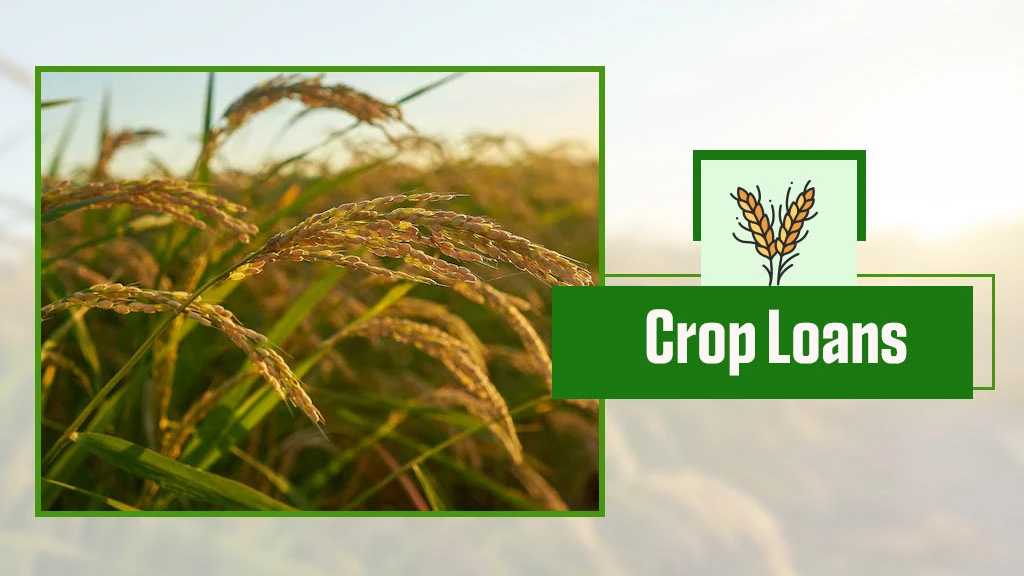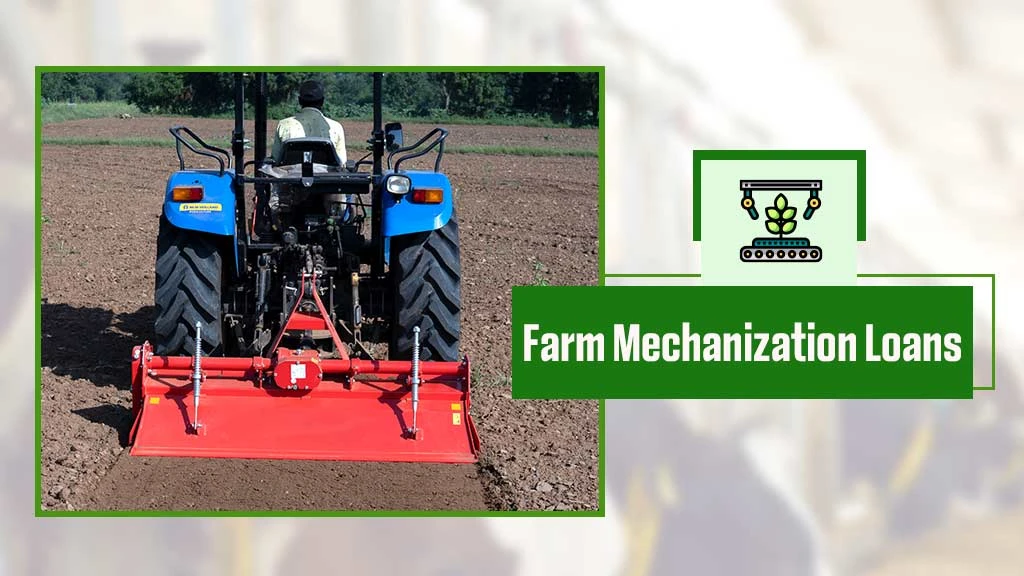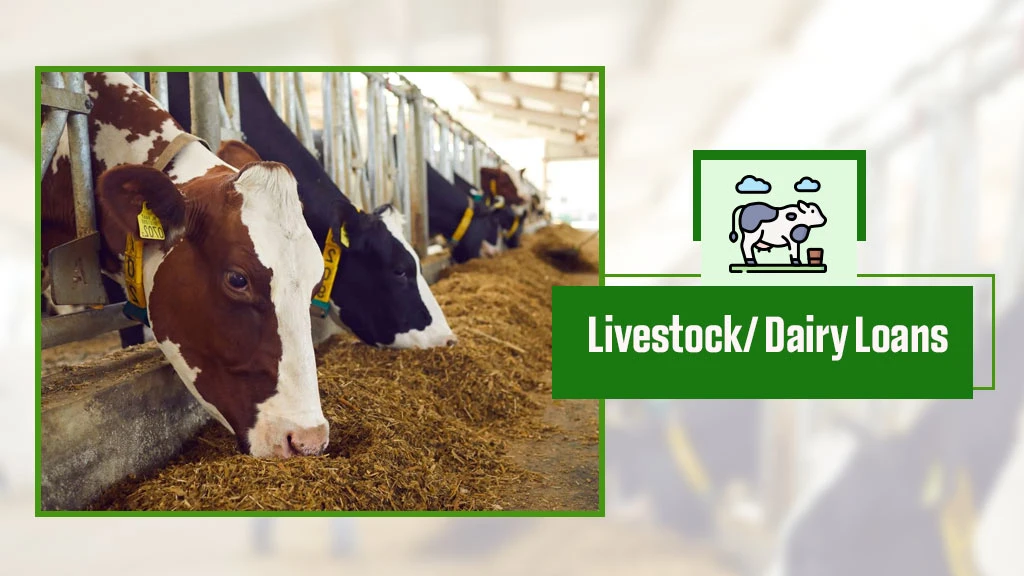Deep Dive into Agriculture Loans in India: Types & Challenges

Table of Contents
What is Agricultural Finance or Agriculture Loan?
India’s agricultural sector has contributed around 17-18% to the country’s Gross Domestic Product (GDP). More than half of the population is engaged in agriculture, underlining the sector's crucial role in the nation's economy. Financial assistance is essential for the growth of the farms.
Agricultural Finance is the management of the financial aspects of agriculture business to increase the country's growth and development. It is also known as "Agriculture Loan". It is essential to provide quick and affordable credit to the farmers in India for the investment in agricultural tractors, implements and other farming inputs to increase the overall productivity of the crops.
Many institutions in India, such as cooperative banks, commercial banks, regional and rural banks and NBFCs (Non-Banking Financial Companies), provide agricultural finance to the farmers. As per RBI, Under the Priority Sector Lending (PSL) initiative for agriculture, banks are required to allocate 18% of their Average Net Bank Credit (ANBC) or Credit Equivalent to Off-balance Sheet Exposure (CEOBE), whichever is higher, to the agriculture sector. Banks and financial institutions provide different agriculture loans for capital investment in agriculture. Let's discuss each in detail.
Types of Loans in Agriculture
Crop Loans

The banks provide crop loans for the cultivation of crops. These seasonal loans provided to the farmers can be used and repaid and used again as required. Several government schemes and initiatives for agriculture, such as the Kisan Credit Card Scheme and Horticulture loans, are associated with RBI and NABARD. The Kisan Credit Card (KCC) was launched to give crop loans to farmers to boost their agricultural work. It offers farmers a period of 12 months for the repayment of loans. These crop loans are to be repaid after the harvest and sale of crops. Many banks, such as HDFC, SBI, etc., provide horticulture loans for crops like fruit crops, vegetable crops, ornamental crops, medicinal & aromatic crops, spices & plantation crops, etc. These loans are given for the maintenance of nurseries, orchards, plantation crops, poly house/greenhouse, hi-tech farming etc.
Farm Mechanization Loans

Farm mechanization is one of the major aspects for the farmer. To meet the agricultural requirements, farmers need tractors, its implements, harvesters. These loans are provided to purchase farm equipment and machinery on credit. Tractorkarvan is a leading platform that provides tractor loan on easy EMI options for farmers. You can also take a used tractor loan, harvester loan, minor irrigation loan and implement loans on implements such as Rotavator, Thresher, Super Seeder, etc. from the platform. The farm mechanization loans empower farmers and increase the overall productivity of the agriculture sector.
Livestock Loans

Livestock loans are an innovative approach to the development of India’s economy. The banks provide these loans for various allied activities like dairy, poultry & fisheries for catering working capital. These loans are provided to the farmers to generate employment in the dairy, poultry and fisheries sector. These loans are given based on the credit history of milk payments from farmers' accounts or milk receipts issued by the dairy societies to develop the dairy sector. There is minimal time for the loan disbursement in these loans. Farmers in the age of 18-60 bracket, with residence stability of 2 years and having existing 2 cattle can easily apply for a livestock loan in most Indian banks.
Agri Gold Loans

The Agri gold loan for agricultural purposes fulfils the needs of farmers who want to invest in agricultural inputs or agri-allied activities and have gold ornaments and jewellery. They can apply for agri-gold loans from banks and financial institutions.
Small Agri Business Loans

These loans are provided to Agri traders, Agri exporters, food processing firms, etc., which include Working capital (Both Fund & Non-Fund Based – Cash Credit, Overdraft, Term Loan, Working Capital Demand Loan, EPC, Bank Guarantee & Letter of credit, etc.) Individuals, partnership firms, Pvt. Ltd. Companies, Limited Companies, etc., can apply for small agri loans at attractive interest rates from various banks in India. These loans also accept collateral such as Residential / Commercial/ Industrial Property/Cash & Liquid Collateral.
Other Loans
There are some other loans provided by different banks and institutions, such as Agri clinic loans and cold storage/ warehouse loans to set up Agri-Clinics expert advice and services to farmers on various technologies and clinical services for crop and animal health and the creation of storage infrastructure such as godowns, dry warehouses, cold storages, cold chains, silos and market yards.
Challenges in Agricultural Finance
- Many farmers in rural areas need more access to formal financial institutions, which is the biggest challenge to their economic growth and development.
- Some farmers cannot provide collateral to the lending institutions so, they lack investment in farming business, purchasing implements, etc.
- High interest rates become the hindrance for the farmers which results in late loan repayments.
- The limited financial literacy among farmers can lead to misunderstandings between the lender and the borrower.
Impact of Agricultural Finance in India
- With the increasing demand for agricultural finance, farmers now have access to different products and services to invest in their farms for higher productivity.
- Agricultural finance has increased the farm productivity for the farmers, creating more and more employment opportunities.
- Agricultural finance helps increasing rural infrastructure like constructing irrigation systems, warehouses, clinics, etc.
- The economic burden of the farmers has been reduced due to the assistance of insurance schemes and initiatives by the government and financial institutions.
Conclusion
Agricultural finance increases farmer's income, crop productivity and access to credit. Now, the farmers are adopting more and more technologies and buying high-quality farming implements, which increase the overall productivity in the country's agriculture sector. The government and financial institutions should develop better schemes and initiatives that enable farmers to access affordable credit in the future. Tractorkarvan is a platform where farmers get all the details regarding agricultural finance such as implement pricing, implement loans, etc. So, no need to worry, get all the required information through Tractorkarvan.


Related Blogs















